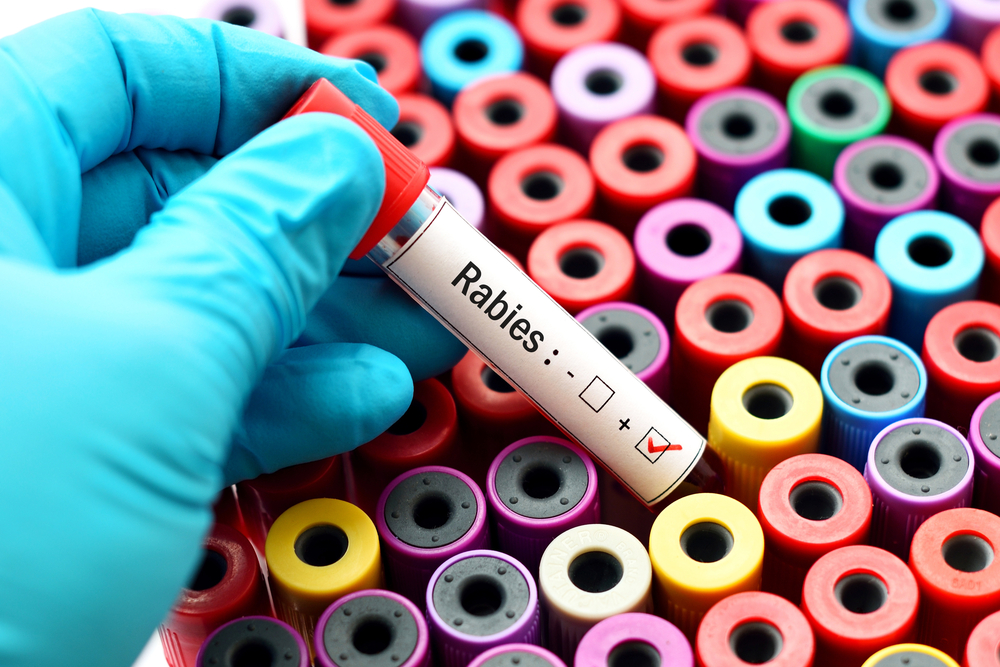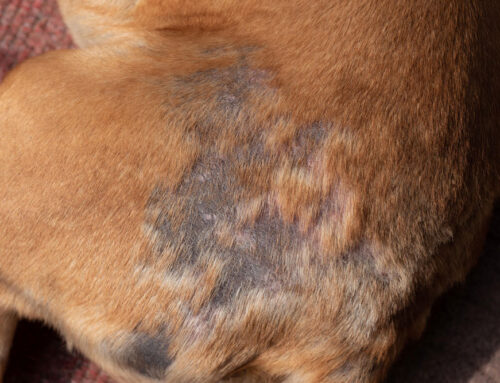Due to ever-increasing advancements in medical technology and education, rabies is almost unheard of in the U.S. Only two or three humans fall victim to this disease each year, and there are roughly 7,000 animal cases annually.
Most pet owners understand the importance of vaccinating their pets against rabies, thus wiping it almost completely out of the domesticated animal population. Recent studies have shown that 92.4 percent of all rabies cases reported were attributed to wildlife. Bats were the most commonly reported, closely followed by raccoons, skunks, and foxes. In domestic animals, rabies is becoming the most common in cats, edging out cattle and dogs.
How is rabies spread?
The rabies virus is transmitted through blood or saliva, so it’s usually spread through the bite of an infected animal. It can also be spread when a rabid animal comes into contact with an open cut or the eyes, nose, or mouth. Mammals are the only animals affected by rabies; birds, fish, reptiles, and amphibians are safe from this virus.
Because of strict vaccination protocols and the mass immunizing of wildlife with oral vaccinations over the past century, the U.S. has greatly decreased the number of rabies cases. Unfortunately, the number of rabies-infected cats is on the rise, since many owners believe that strict, indoor-only cats do not require rabies vaccinations. Even though transporting a frightened cat to the veterinarian is not always an easy task, ensuring that your cat is kept up-to-date on her rabies vaccination can save her life (and yours!). There are no guarantees that your cat won’t suddenly want a taste of freedom and bolt for the door, or that a rabid bat may swoop in through the chimney. Vaccinating against rabies provides protection for you, your pet, and the general public.
What are the signs of rabies?
Rabies is a virus that attacks the nervous system. It travels along the nerves to the brain. The virus can take up to a month to develop, but once symptoms become visible, the disease progresses rapidly.
There are two forms of rabies: paralytic and furious. Paralytic, or dumb, rabies is displayed by loss of coordination and weakness followed by paralysis. Furious rabies is what people most commonly think of when they hear the term “rabies.” This form is characterized by extreme behavioral changes, such as heightened aggression and attack behavior.
If your pet has been bitten or scratched by an unknown animal, watch out for these signs:
- Fever
- Seizures
- Paralysis
- Fear of water
- Dropped jaw
- Inability to swallow
- Change in bark
- Lack of coordination
- Behavioral changes
- Excessive salivation or frothy saliva
- Fearfulness
- Aggression
- Staggering
What if my pet is bitten?
If your pet happens to be bitten by an animal with an unknown vaccination status, call our office immediately. We can walk you through the steps you must take to keep the public and your family safe.
- Call animal control. All potential rabies exposures must be reported to the local authorities.
- Any pet with an up-to-date rabies vaccination that is bitten should receive a booster immediately.
- After a rabies booster, keep your pet confined for a 10-day quarantine. Limit contact with your pet as much as possible. The length of quarantine may differ depending on the circumstances surrounding the bite.
- If your pet was not current on her rabies vaccination, the quarantine period is much longer, potentially lasting up to 6 months.
- If your pet dies while under quarantine, testing for rabies is required. Sadly, the only way to test for rabies in animals is to perform an antibody test on the brain tissue of the infected pet.









Leave A Comment